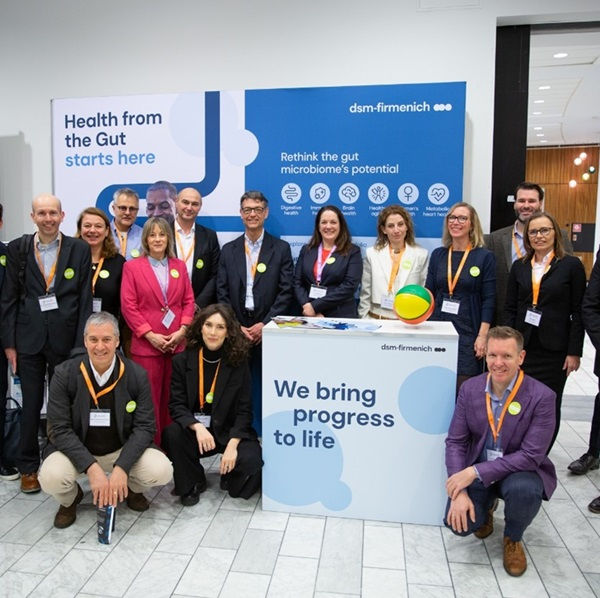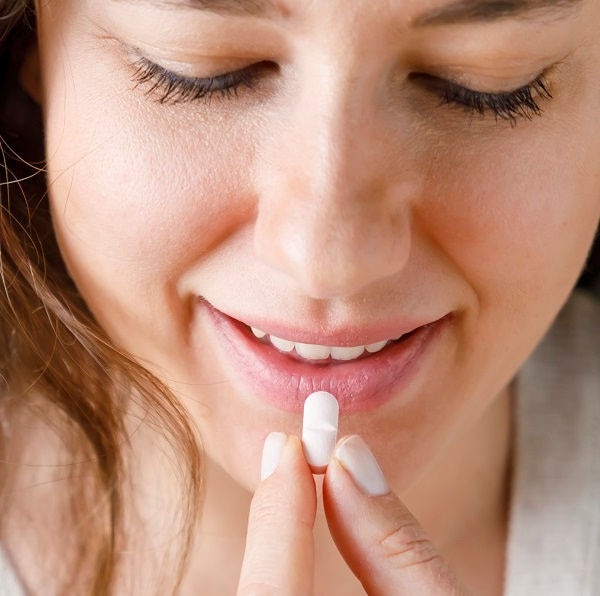News
September 8, 2017
Lutein and zeaxanthin supplementation may slow progression of AMD
Eye health is a leading health concern worldwide and, with 17.1 million people across the European Union (EU) alone suffering from age-related macular degeneration (AMD). A study by Frost & Sullivan revealed that if every adult over the age of 50 with mild AMD were to consume 10mg of lutein and 2mg of zeaxanthin a day, it could generate €6.20 billion ($7.33 billion) in savings in the EU alone through reduced healthcare costs and increased productivity.
By: Dr. Manfred Eggersdorfer, Professor for Healthy Ageing, Senior Vice President of Nutrition Science & Advocacy, dsm-firmenich Nutritional Product

Lutein and Zeaxanthin may slow progression of AMD.
Summary
- AMD is one of the leading causes of vision loss and is more likely to affect those aged over 50 years old
- New study shows 10mg of lutein and 2mg of zeaxanthin a day may slow the progression of AMD
- Achieving the recommended intake of lutein and zeaxanthin could result in savings of up to €6.20 billion a year in the EU through a reduction in the costs of treating and managing the condition, as well as indirect costs related to productivity loss
- The more severe the AMD, the more it costs to treat and the higher the costs associated with those affected being unable to perform daily tasks and work
- Supplementation is a safe, effective and reliable method of increasing lutein and zeaxanthin intake
Eye health is a leading health concern worldwide and, with 17.1 million people across the European Union (EU) alone suffering from age-related macular degeneration (AMD), it is clear to see why.[1] AMD is a progressive degenerative eye disease and one of the main causes of vision loss.[2] It affects the central vision, leaving those affected unable to see well directly ahead of them and potentially leading to a loss of independence and an inability to perform daily tasks. However, a new study by Frost & Sullivan has found that a daily consumption of 10mg of lutein and 2mg of zeaxanthin may help to slow the progression of AMD – increasing the health of the population and offering significant savings in public spending.
About AMD
As its name suggests, AMD causes damage to the macula - the part of the eye needed for sharp, central focus. While it is far more likely to develop in people over the age of 50, there are other risk factors including genetics and modifiable factors such as smoking or poor diet.[3] An individual can be diagnosed with a mild case of AMD through to the more severe advanced stages. It is during the later stage of AMD that people may find themselves unable to work or complete daily tasks and will require more comprehensive medical treatment.
Looking at the bigger picture
The study by Frost & Sullivan reviewed the wider impact AMD has on society, particularly the later stages of the disease in the EU population. Of the 17.1 million people in the EU with AMD, approximately 2.5 million of cases are at the severe stage. The total cost of managing the consequences of advanced AMD in the EU is €89.46 billion a year, according to Frost & Sullivan’s Visionary Science team.
The study revealed that if every adult over the age of 50 with mild AMD were to consume 10mg of lutein and 2mg of zeaxanthin a day it could generate €6.20 billion ($7.33 billion) in savings in the EU alone, through reduced healthcare costs and increased productivity. This was calculated by analyzing the scientific literature available on the role of lutein and zeaxanthin in slowing the progression of AMD and an assessment of various health state scenarios to understand the true cost implications of the disease.
Prof. Jean-François Korobelnik, Head of the Ophthalmology Department, University Hospital of Bordeaux, has stated: “In a perfect world, if adults aged 50 or older with no age-related macular degeneration or with [mild/intermediate] AMD were to increase their daily lutein and zeaxanthin intake, the prevalence and progression of AMD would reduce, based on the overarching body of scientific evidence. Further, as approved therapies are only available for the severe form of the disease, significant cost savings would result from the reduction of the incidence of advanced [severe] AMD."
Lutein and zeaxanthin: eye health heroes?
Lutein and zeaxanthin are carotenoids that are naturally deposited in the eye to form a macular pigment, protecting the eye from blue light and improving visual acuity.[4] As lutein and zeaxanthin cannot be produced naturally by the body, they must be consumed through the diet. While lutein and zeaxanthin can be found in some vegetables, including leafy greens and corn, supplementation offers an effective and reliable method of ensuring the recommended daily intake is reached.
“In a perfect world, if adults aged 50 or older with no AMD or with mild AMD were to increase their daily lutein and zeaxanthin intake, the prevalence and progression of AMD would reduce.”
Jean-François Korobelnik, Head of the Ophthalmology Department, University Hospital of Bordeaux
References
[1] dsm-firmenich, ‘EMEA health concerns’, 2016.
[2] World Health Organization, ‘Causes of blindness and visual impairment’, http://www.who.int/blindness/causes/en/ (Accessed 09 September 2017).
[3] National Eye Institute, ‘Facts About age-related macular degeneration’, https://nei.nih.gov/health/maculardegen/armd_facts (Accessed 09 September 2017).
[4] S.M Abdel-Aal et al., ‘Dietary sources of lutein and zeaxanthin carotenoids and their role in eye health.’, Nutrients, issue 9, vol 5, 2013, p. 1169-85.
Related Content
Recommended Reading
-

2 April 2025
The gut microbiome as a pathway to supporting children with autism: New study reveals synbiotics' dual benefits for digestive and behavioral symptoms
-

11 March 2025
What's next for gut health? 5 breakthrough trends from Probiota 2025
-

21 February 2025
New CBD bioavailability study with CBtru®
Quick links
Customized blends of functional ingredients in one single, efficient premix.
Streamline your product development process and get to market faster.
From trade shows to conferences and other industry events, find out where you can meet us next.
Talking Nutrition, Health & Care
Explore new science, consumer insights, industry news and more in our latest articles.
Discover educational whitepapers, webinars, publications and technical information.
Request samples, place orders and view product documentation.